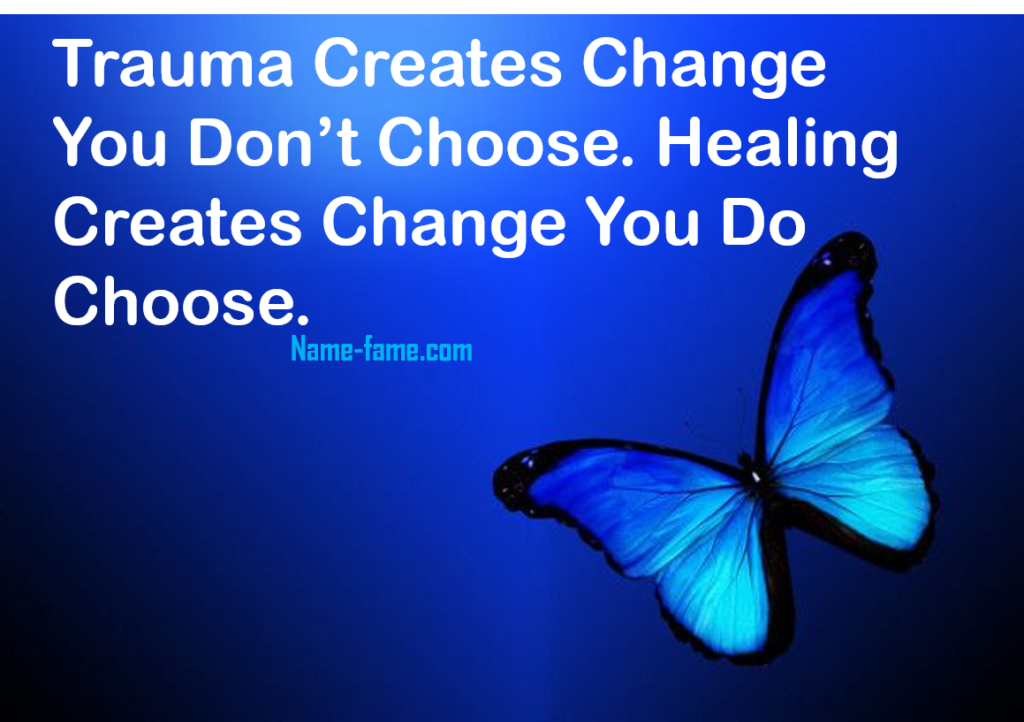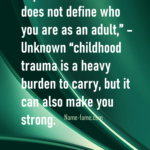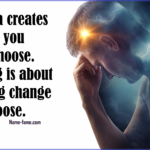Sometimes we are unable to avoid events in life that cause us to be traumatized for an extended period of time. Unresolved trauma can have a significant negative effect on a person’s mental and emotional health. Despite the fact that every person reacts to traumatic situations differently, there are some universal warning indicators that may point to unresolved trauma. Will examine 16 indicators that point to the possibility of unresolved trauma.
Abrupt Independence
Refusing assistance from others and putting excessive pressure on oneself may be signs of trauma. People in the process of recovery might not always understand how to reach out for assistance, but that doesn’t mean they shouldn’t.
Nightmares and flashbacks
Unhealed trauma may be indicated by persistent nightmares, intense flashbacks, or bothersome memories of the traumatic incident. The most dramatic scenarios are possible: imagine someone who is asleep and suddenly wakes up with a start, possibly even screaming, or someone who is strolling down the street and jerks as if they have been electrocuted. These experiences can be brought on by specific triggers, which makes the person feel as though they are again in the traumatic circumstance.
Negative Outcomes
It’s not always the case that someone who overreacts to a seemingly insignificant and unimportant item is just a grumpy or terrible person. Unexpected reactions are frequently a sign that someone is processing unresolved trauma.
Avoidance
Those who have unresolved trauma frequently go to considerable measures to keep themselves away from anything that triggers their painful memories. This may entail staying away from specific individuals, locations, or pursuits that could bring up upsetting memories or feelings. “I actually Needed alone time in a quiet space all by myself to feel comfortable, normal and safe, not constantly, but definitely often,” one participant writes.
Over-Awareness
A person likely has unhealed trauma if everything constantly puts them on high alert, watching their surroundings for possible threats. “We go into hypervigilance and our ‘threat perception’ goes into overdrive when the window of tolerance gets smaller,” someone says. The worry and terror from the traumatic event continue to cause hypervigilance.
Changes in Mood
Unresolved trauma can also be indicated by emotional instability in those around you. People can suffer through abrupt and severe mood swings, feeling overwhelmed by feelings like fear, rage, or grief that come and go at the strangest times. An individual reports that their experience caused a significant mood fluctuation that “required medical prescriptions.”
Anger and Irritability
Someone who exhibits continuous irritability or rage fits for the most unlikely causes is most likely suffering from unresolved trauma. They just have anger for everyone and anything, even for things that aren’t worth getting too worked up about. As one letter notes, for instance, even something as simple as overcooking their eggs can cause them to become so enraged that they either harm themselves or others who are innocent. To summarize, even seemingly insignificant events can set off these powerful feelings, which can be challenging to regulate or control.
Apathy for Feelings
Emotional numbness is likely the result of an unresolved trauma for your companion. Frequently, you may notice that they seem disengaged or cut off from their own emotions. This may show up as an overall feeling of emptiness, an absence of joy, or the inability to enjoy yourself.
One participant tells of discovering much later in the grieving process that they were no longer emotionally capable of feeling things after going through a traumatic incident.
Disengagement from Social Media
Isolating oneself and avoiding social situations, acquaintances, or family might be signs of unresolved trauma. A scream for assistance may be heard if you observe someone who has difficulty believing others, refuses to interact with individuals or be seen in public, or is always terrified of being rejected or criticized. They allegedly spent years isolating themselves. They write, “I mean, I actually lived in a little cabin in the woods for eight years off-grid.” More frightening than that?
Misuse of Drugs
To deal with the uncomfortable effects of unresolved trauma, people may abuse drugs or alcohol. Few individuals consider the possible causes of someone who abuses drugs to the stage of addiction; the majority of people condemn such behavior. Whatever lets people forget their suffering, no matter how brief, is quickly embraced. But in reality, emotional agony can be momentarily dulled by alcoholism or drug addiction, but these problems eventually come back to haunt you.
Self-Destructive Patterns of Conduct
Unresolved trauma survivors frequently engage in self-destructive activities, such as self-harm or careless behavior. Some even go so far as to burn their body on candles or on their own cuts. These actions frequently reflect intense emotional suffering and a last-ditch effort to recover control.
Prolonged Physical Symptoms
Symptoms of unresolved trauma may include headaches, stomach issues, chronic pain, or mysterious health illnesses. Medical methods might not be able to properly identify or cure a persistent headache or soreness you’re experiencing. These symptoms have a strong correlation to unresolved trauma and may not improve with medical intervention alone.
Distorted impression of oneself
Unhealed trauma survivors may experience shame and remorse, low self-esteem, or a negative self-image. Someone tells the tale of a pupil whose instructor made fun of them in class, and how this affected the student’s life significantly later on, even as adults, in terms of low self-esteem. They can think they are defective or hold themselves responsible for the terrible incident.
Emotional Repertoire
Individuals who have unresolved trauma may find themselves drawn to relationships or circumstances that resemble their traumatic past on a regular basis. They are unable to respond appropriately due to these overwhelming feelings; instead, they recreate the incident or become new victims. It’s possible that this recreation is a subconscious endeavor to master or regain control over the unresolved trauma.
Having Trouble Forming and Sustaining Relationships
Trauma can make it difficult for survivors to build stable relationships, create healthy bonds, or trust other people. Such a person may be easily triggered by small things, leading them to constantly doubt their partner’s devotion. They begin to believe that no one, not even those who claim to be sincere with them, can ever win their trust. This could be due to a variety of factors, such as interpersonal issues, a fear of being abandoned, or trouble expressing their needs.







